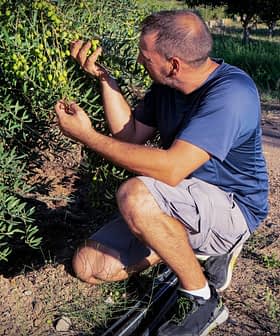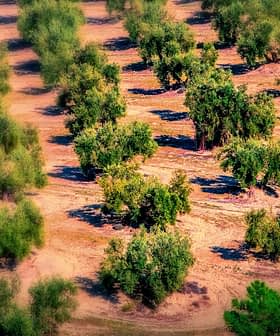Andalusia Pledges Big Investment in Olive Sector
More than €60 million will be provided to farmers and agricultural associations to invest in irrigation infrastructure and new technology.
The Andalusian provincial government has pledged €47.1 million for investment in irrigation infrastructure and €16 million for innovation in the agri-food sector, with a focus on supporting olive producers in the region. The investments aim to modernize infrastructure, mitigate climate change effects, and promote the use of new technologies such as mobile applications, satellites, and drones for precision agriculture.
The Ministry of Agriculture, Fisheries and Rural Development of the Andalusian provincial government has pledged €47.1 million for investment in irrigation infrastructure and technologies. The provincial government also said that it would provide €16 million to promote innovation in the agri-food sector.
Now is the time to strive and boost the sector from a global perspective.
Olive producers in the autonomous community will benefit greatly from both investments. The investment in irrigation is part of an ongoing effort to modernize Andalusia’s aging infrastructure as well as find new ways to mitigate the effects of climate change on the region.
“To date, more than €66 million has already been announced in several support lines for the modernization of irrigation, new irrigation infrastructure, improvement of energy efficiency and even self-production of energy with solar plants,” Antonio Morente Galisteo, a spokesman for the Andalusian Ministry of Agriculture, Fishing and Rural Development, told Olive Oil Times.
“These investments are not only for modernization and improvement but also will support the construction of sewage treatment plants, which will allow the regeneration of purified water to make it suitable for irrigation, as well as the pipes to take that water to the specific communities and even reach new areas,” he added.
The money will be spread among local governments in order to disseminate to specific farmers and provided to water treatment plant companies in the selected regions. Morente Galisteo said more details regarding the exact allocations of the money would be decided later in the year.
Meanwhile, the investment of €16 million will be used for the development of mobile applications, the use of satellites and drones for precision agriculture and the application of artificial intelligence in farms and industries.
“From the Andalusian Government, we want the olive sector to lead and revolutionize the digital era, taking advantage of the full potential of new technologies,” Rodrigo Sánchez Haro, the Andalusian Minister of Agriculture, Fish and Rural Development said at the 2018 Futuroliva fair in Jaén.
So far, €8.7 million has already been made available by the Andalusian provincial government to distribute using innovation operative groups, which include farmers and agricultural associations. According to Sánchez Haro, €3.8 million has already been allocated to help develop 17 different projects. More than half of that total has been specifically earmarked for olive growers.
“Now is the time to strive and boost the sector from a global perspective, to strengthen the balance in the value chain food industry and to focus our efforts on innovation so that it adds value to the olive sector,” he said.
The money will be awarded to specific groups in the form of grants. In order to address very specific problems, farmers and producers facing a similar issue will form the innovation operative groups.
“These groups are usually formed by producer associations with a specific problem, experts capable of developing a solution and companies capable of implementing it,” Morente Galisteo said.
Once the problem has been addressed the group will dissolve and all parties involved would be able to create and join new groups. The provincial government hopes that this flexibility allows for greater innovation.
A big part of this effort by the provincial government is to modernize the sector and take advantage of the data revolution and resulting machine-learning technologies. There are numerous companies in Andalusia that already are developing these kind of technologies that would make olive growers more efficient. This funding operation will act as the catalyst that allows the two groups to work together and implement what is being developed.
“We already have examples, such as the model developed by an Andalusian company (EC2CE) which, based on the database of the Plant Awareness and Alert Network (RAIF) and other types of data, has developed a predictive model capable of anticipating when and where the olive fly will attack,” Morente Galisteo said. “In this way farmers can be prepared and perform the treatments more accurately, saving phyto-sanitary costs.”
The Ministry has also recruited companies developing drone technologies for agricultural use. According to Morente Galisteo, drones will be able to help farmers detect diseases in trees, determine whether there are trees that require more fertilizer and may even be used for precision pesticide applications.
The Ministry is also working with data companies to develop software that will help to predict prices, which will help farmers make better decisions.
“We have also developed a predictive model from the Ministry of Agriculture, Fisheries and Rural Development to estimate olive harvests based on surface history, yield, meteorology, etc,” Morente Galisteo said. “These models learn over time, as they incorporate more data series, to adjust to the real data.”
Several olive farmers located in Andalusia declined to comment for this story, saying that it was still too early to tell whether their specific farms would benefit from the investments and whether they would be able to increase their production and/or decrease their expenses as a result of it.









